How the Myer and Baillieu dynasties backed Phil Harkness to grow Mutual Trust
Phil Harkness had to prove himself to two famous families when he joined Mutual Trust eight years ago. Now he’s in charge of more than $16bn and rewriting the rules of managing wealth.
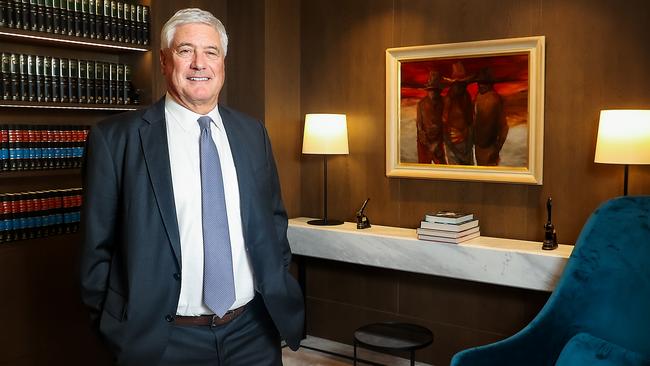
When Phil Harkness began work at Mutual Trust on July 31, 2017, he had not met a single family member of Melbourne’s legendary Baillieu family.
Mutual Trust was established in 1921 by William Lawrence Baillieu – the man credited with laying the foundations for the Baillieu family dynasty – and his five brothers, to manage its wealth.
Since then it has become the nation’s largest and most prestigious multi-family office.
When Harkness came aboard, the firm had just agreed to undertake the most significant strategic move in its history.
It was a merger with the Myer Family Company (MFCo), then one of the nation’s most well-known family offices backed by the Myer family, to create a $3bn wealth management and intergenerational advisory powerhouse.
The Myer family’s 150-year-old holding company, Myer Family Investments, emerged with 35 per cent of the enlarged Mutual Trust and became its biggest single shareholder.
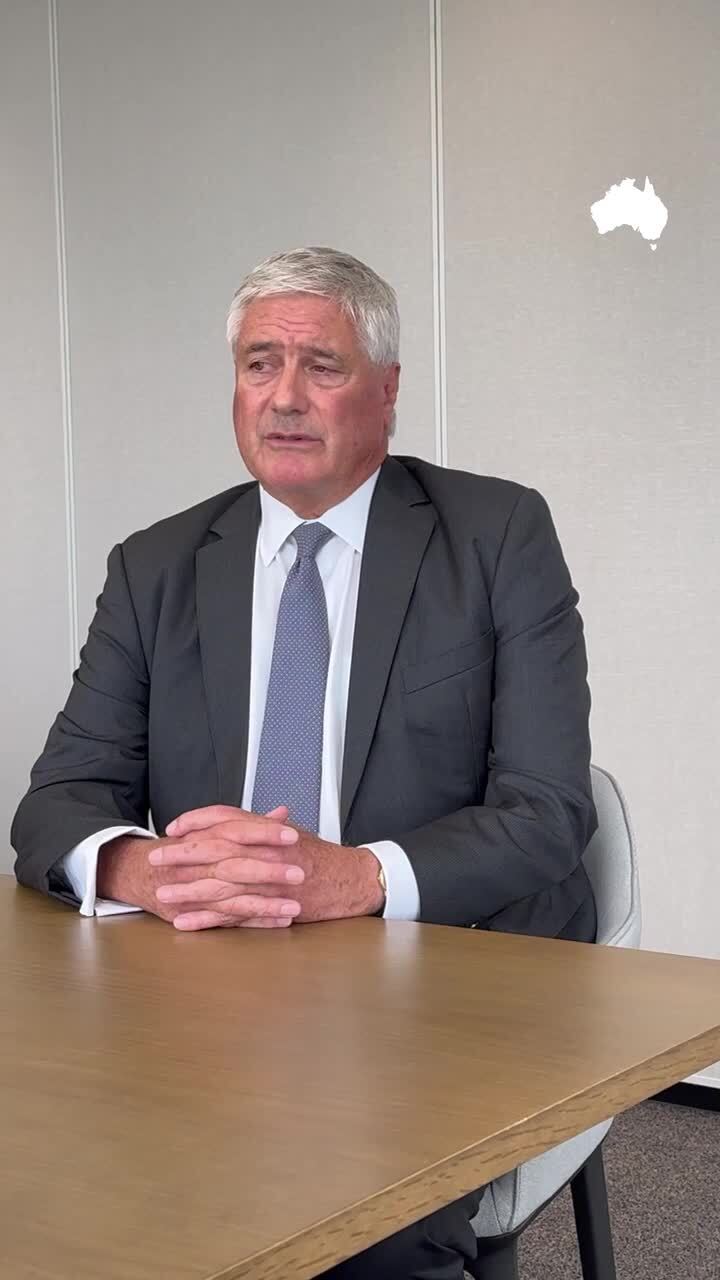
But whereas Mutual Trust was 96 years old, the MFCo had spent only two decades in business and they both had their own approaches to wealth management.
While the Baillieu and Myer families had both made significant contributions to Australian philanthropy and society more generally through their rural, investment and retailing dynasties, they had never before worked together in a single firm.
“The board were watching like hawks. I was a new CEO and was not well known,” says Harkness, in the first wide-ranging media interview of his life.
“Sid Myer and Rupert Myer came on to the board of ‘New Co’, as we called it. But they were really good, because I knew the onus was on me to demonstrate that I knew what I was doing.”
Harkness called on his decades of experience as a management consultant at Boston Consulting Group, Arthur Andersen, AT Kearney and EY to integrate the two firms and undertake the technical challenge of transferring more than 10 million data points from MFCo to the Mutual Trust custody platform.
He created 10 different work streams. But importantly, he remembered his most vital stakeholders.
“The most common mistake people make in merger integrations is that both firms turn inward,” he says. “They worry about the computer systems, the finances, the branding, the marketing and concern themselves with that. But they forget about clients. We didn’t.”
Eight and a half years on, Mutual Trust has more than $16bn in funds under management across all major asset classes, with more than 200 employees.
In April, the firm was recognised as “Australia’s Best for Family Office Services” in the prestigious Euromoney Private Banking Awards.
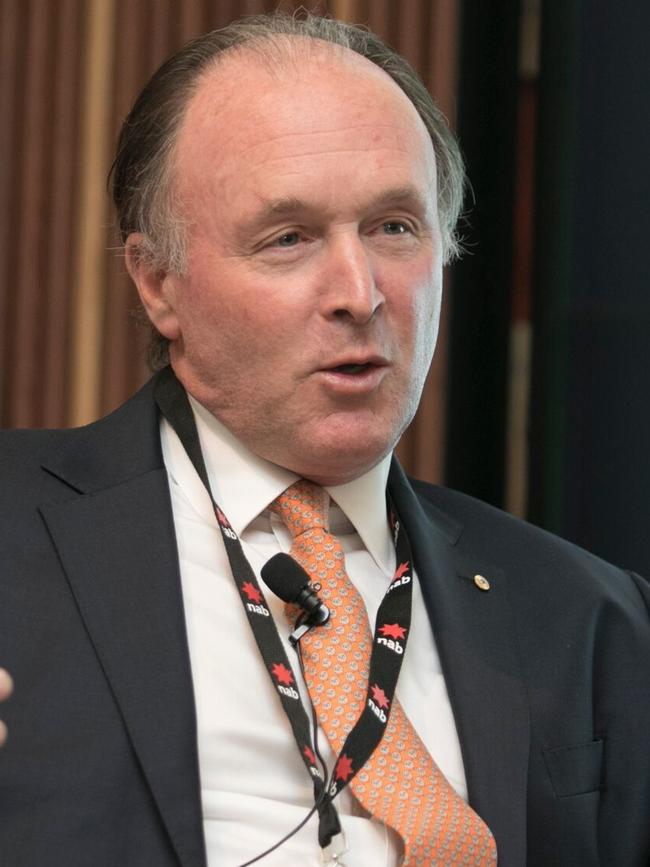
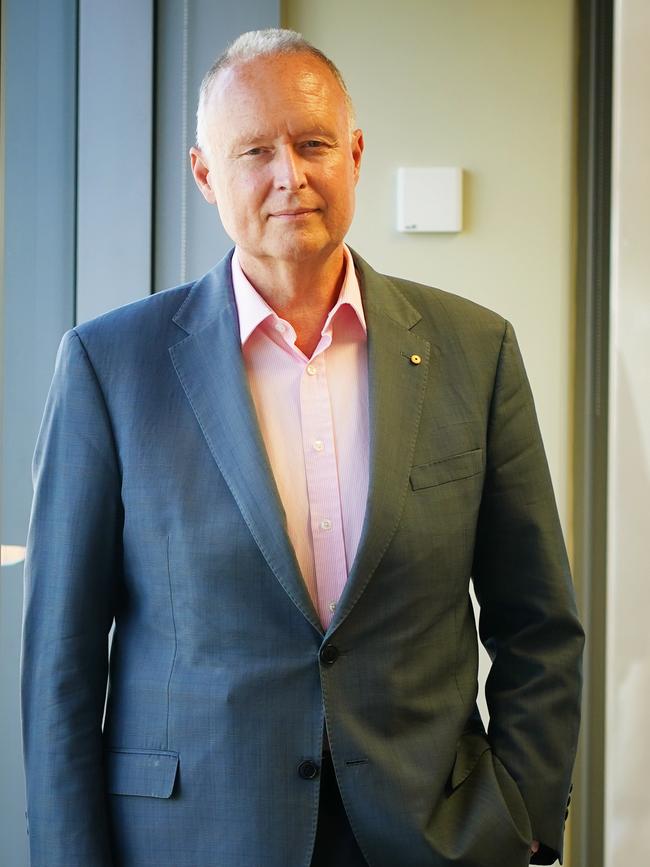
It has developed and codified what is known internally as “The Mutual Trust Gemstone”, which can be applied to each family’s wealth situation.
The gemstone reflects the five determinants of the purpose of wealth: financial prosperity; entrepreneurship; family unity and harmony; learning, engagement and fulfilment; and community impact.
On the latter topic, Mutual Trust has just published a strategic blueprint to help families achieve a meaningful intergenerational impact through their giving.
It helps families uncover their purpose for giving, defining an approach that aligns closely with their values and then allows them to execute it professionally for maximum impact.
Mutual Trust argues that discovering and executing this purpose for giving fosters a sense of unity within a family, inspiring its members to build a legacy of giving that will span generations.
“It is not just about giving, it is actually about ‘how are we going to crack some savage medical condition that took a grandfather, for example’,” Harkness says.
“It is about an outcome, and it is also about the institution that looked after that grandfather, that the family is just so grateful for.
“Then there is the whole aspect of financial prosperity that relates to this. So how are we going to fund all this? What is it going to cost? What kind of dividends is the family business throwing off to support this?”
Harkness says philanthropy has also become key in confronting the biggest challenge in the sector, as an estimated $4.9 trillion in wealth is transferred between generations in Australia over the next decade: family conflict.
To illustrate, he shares a compelling story – without disclosing the names – about two sisters from a wealthy family who were in conflict with each other. The fight never made headlines.
Through external facilitation, the two women discovered they shared a common passion for philanthropy, specifically supporting women’s causes.
This shared interest became the foundation for reconciliation between them as they created a foundation together to support their mutual philanthropic interests, which not only resolved their conflict, but also strengthened their relationship.
He says the external facilitation of Mutual Trust was crucial in helping them identify these common interests and channel them into meaningful philanthropic work.
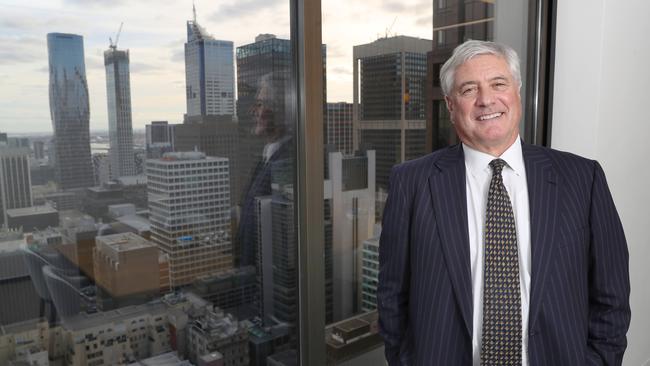
While Mutual Trust now has many families as clients, Harkness says the Baillieu and Myer family heritage is paramount, having significant influence on the firm’s culture, values and philanthropic efforts.
Their active involvement has helped shape the organisation while preserving their individual family legacies.
“We know the nation benefits from the pursuits of wealthy families and the Baillieu family are big believers in that ideology,” he says.
“Then the Myer family are just so strong in all things philanthropy and in that whole community impact space.”
Family passion
Phil Harkness’s world changed forever when he was just 14.
In 1971 his father, a highly regarded army medic and deputy director of the Australian Army Medical Corps, died suddenly while on duty in New Guinea. He was 54.
“He worked himself to death, really. He was just a really busy guy,” Harkness says.
While his father was deeply committed to his role in the military medical field, he equally loved farming and agriculture, a passion that still runs through the family today.
For his mother, the burden of losing her husband was immense. Widowed at 52, she was suddenly alone. “She did it pretty tough,” Harkness says. “But it had a very happy ending.”
In his final year of school, she remarried to a man he describes as a “really good guy”.
“Mum had been pretty unhappy based on where she was at, and then she came good,” he says.
Harkness stresses he never sought sympathy for his plight after the death of his father. His four brothers were all high achievers, three of them travelling abroad to study medicine. So it was never an option for him to simply fall away.
“Actually in retrospect, it has helped me in a perverse sort of way to be pretty resilient. You just had to get on with it,” he says.
“Sometimes I look around me in this society now and think the same – people just have to get on with it.”
That stoic pragmatism served him well through university and beyond. He enrolled in Agricultural Science at La Trobe University in the late 1970s, a nod to both his father’s legacy and his own love of the outdoors.
The 1980s saw him working full-time at Philip Morris while completing an MBA at Melbourne Business School, a rigorous double life that would prove pivotal.
“It was really life changing for me because I just got completely captivated by this whole idea of strategy,” he says. “How does one firm outperform another in a given industry? I got really into that and did very well at that at uni in the MBA program.”
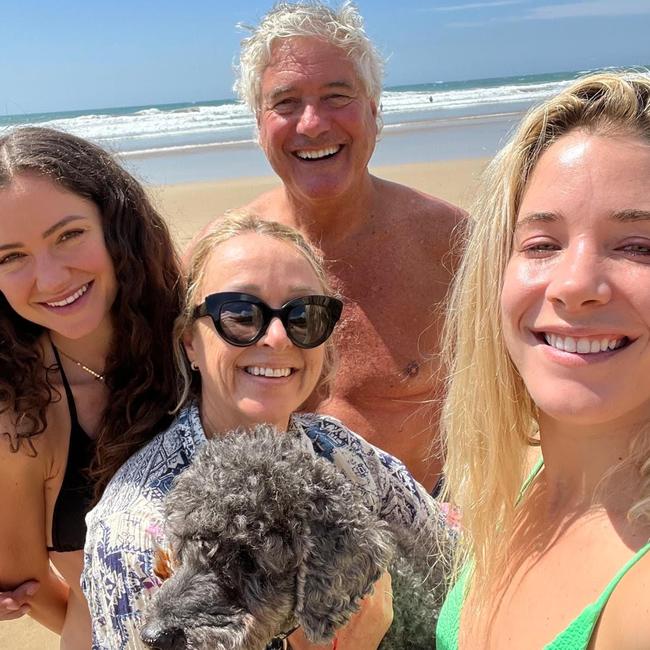
One particularly poignant thread in Harkness’s life story is woven through the Victorian coastal town of Lorne, where the family spent countless holidays by the surf at a home built by his mother after her husband’s death.
After her death in 2009 at the age of 90, she left that home and the adjacent block of land to her sons, dividing her estate with clarity and fairness.
“She did a really nice job of allocating her assets to the five boys,” Harkness says.
His portion was the block of land next door to the family beach house.
“My wife Rosie and I built a house there in 2010,” he says. His brother Jim inherited the family beach house.
“He’s one of my best mates. Jim, his wife and their kids are often down there too,” Harkness says. “It’s still a family place.”
Now his own immediate family’s story mirrors the ethos of Mutual Trust in terms of legacy, stewardship and multi-generational engagement.
His own children are all building businesses of their own.
Georgie lives in New York, Phoebe in Melbourne. Together they co-founded Harkness Jewellery, a fine jewellery enterprise that crafts pieces in India and sells mainly into North America.
They are all close.
“The entrepreneurship facet is there, as is the learning, engagement and fulfilment thing,” Harkness says of how the Mutual Trust gemstone is reflected in their lives.
It’s no surprise that all three Harkness children are now clients of Mutual Trust, though their father has been intentional in distancing himself from their direct management.
“I’m encouraging the kids to interact with the firm directly, not through me,” he says.
“Which is what they are doing. The girls have got a whole accounting gig now, there’s a US operation and Australian operation. You would think it is freaking Rio Tinto. But I think that is a really important thing for this business, to bring that next generation through and for them to see the value in Mutual Trust.”
He then adds with a wry smile: “The only downside is I have to pay for it all!”
Deepening presence
Mutual Trust is now looking to deepen its already strong presence in agriculture, building on the legacy of the Myer and Baillieu families on the land.
The firm services clients – some of whom live overseas – with large agricultural holdings across every state and territory.
“You might have a family with a huge property in central NSW, with seven employees, cattle and sheep, and they’re based in London. Someone needs to run the financial side. That’s where we come in,” Harkness says, stressing that Mutual Trust is not trying to displace agronomists or primary producers.
“Often you’ve got a single asset, the farm, and carving it up can destroy scale.
“So how do you work through that complicated problem? We just think there’s a lot of room for growth on managing issues like that.”
Agriculture, he believes, is a growth engine not just for the firm, but for Australia’s future.
“There’s a lot of benefit for the agricultural community to understand what we do,” he says.
From a teenage boy staring down the future without a dad, to being a father of entrepreneurs and a custodian of family legacy, Harkness has always remained grounded in a belief in quiet perseverance, honest work and playing the long game.
Now aged 68, he is in no hurry to step down from his role, although succession planning is very much on the agenda at Mutual Trust.
While his long career in consulting was often focused on diagnosis and recommendation, it is the act of implementation that has brought him the deepest satisfaction over the past eight years.
On his watch, Mutual Trust has undertaken and executed more than 100 significant projects. But what still gives him the greatest satisfaction, above all else, is putting the clients first.
“So we prioritise our projects based on that. We just have to push things out if we don’t have the bandwidth because we are so busy with clients. So the clients are the winners in all of this,” he says.
“We are uncompromising about the quality of the work we do, but we also don’t take ourselves too seriously. That would be a short description of the culture here. People want to come and work here and those who are here want to stay.”



To join the conversation, please log in. Don't have an account? Register
Join the conversation, you are commenting as Logout